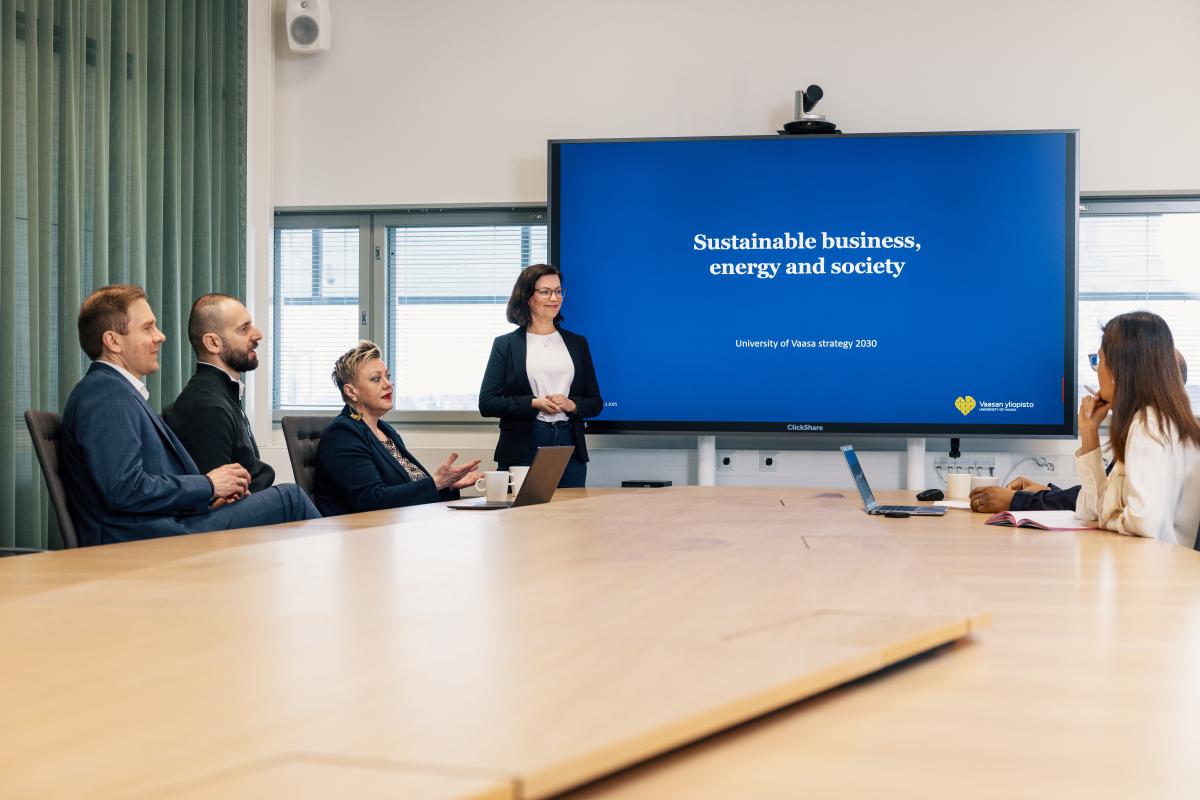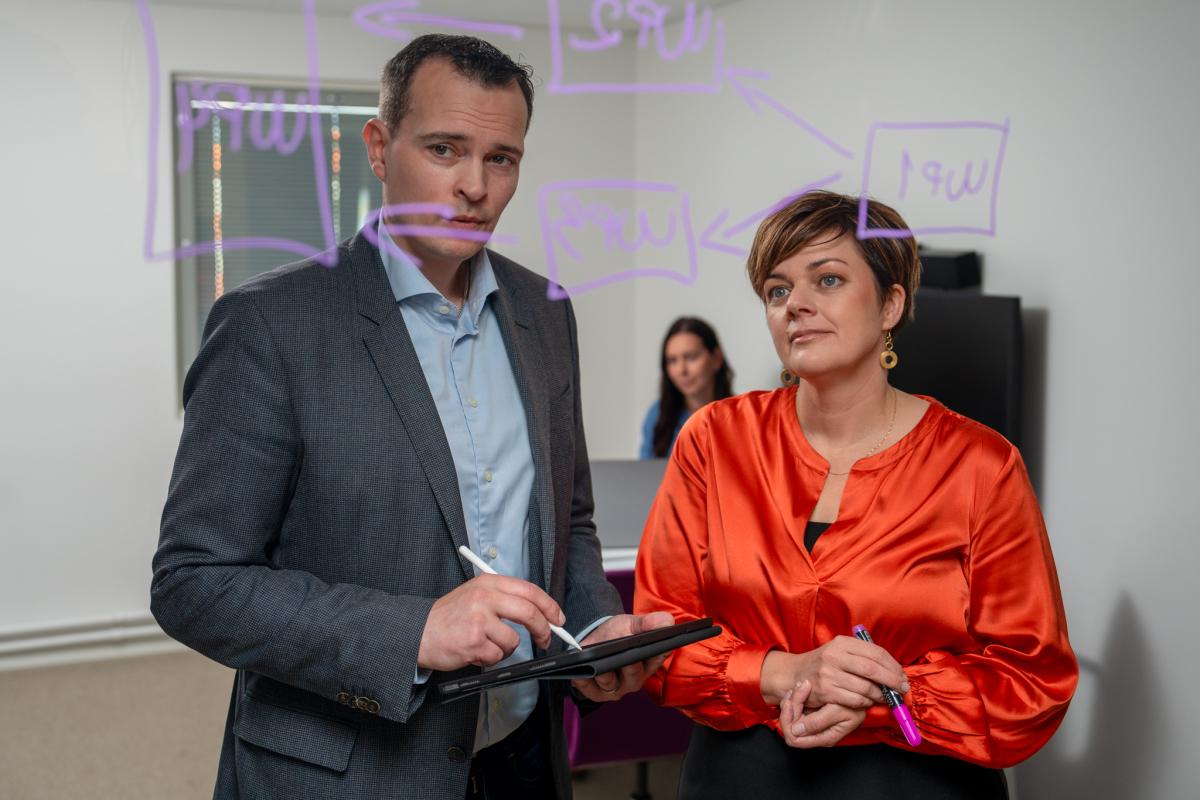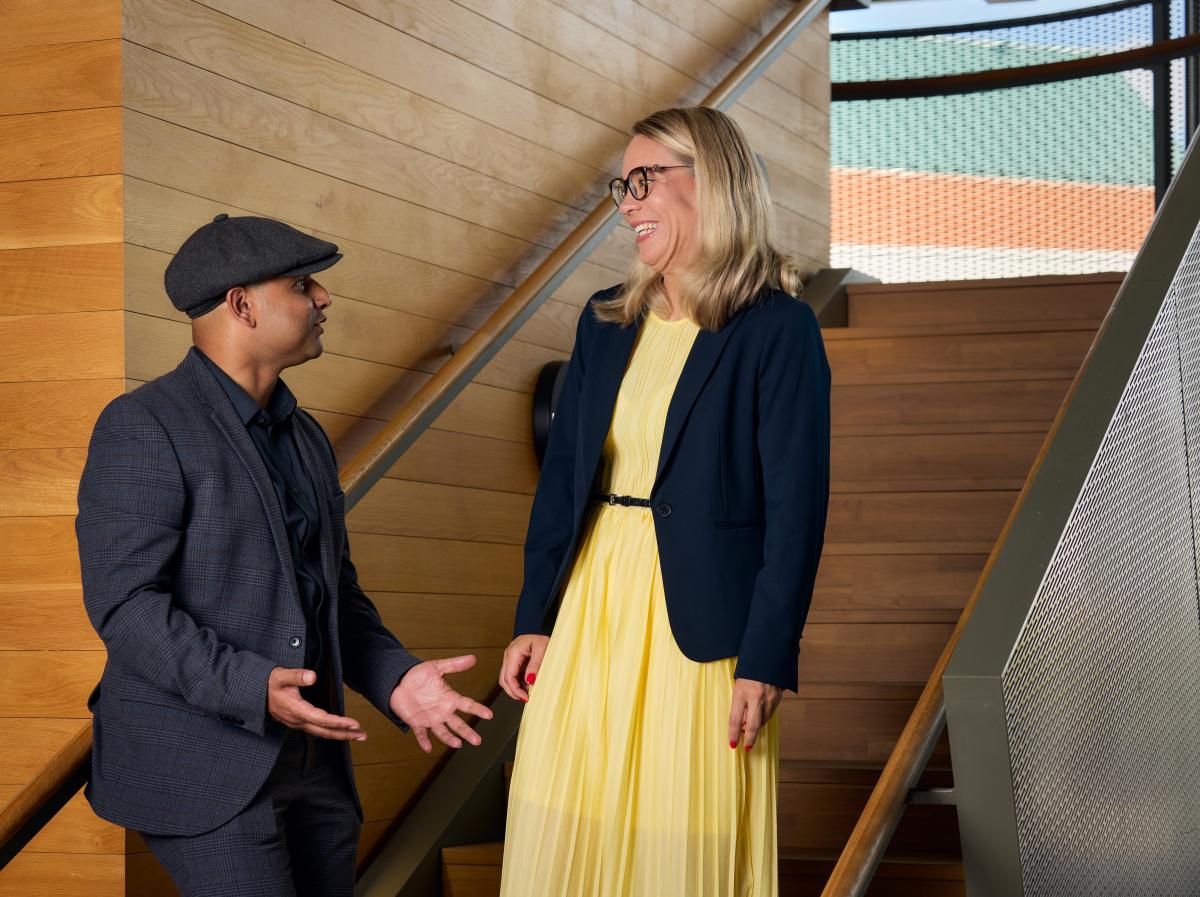CoDoc - Collaborative Doctoral Partnership Model
CoDoc – Collaborative Doctoral Partnership Model is the University of Vaasa's collaborative model that integrates a company's or third party's research topic into the doctoral researcher's research topic. The research topics of dissertations within the CoDoc model rise especially from the challenges related to regional companies’ international competitiveness, speeding up the innovation activities and research and development interests. CoDoc is based on a joint funding model, where the partner funds the first two years and the university the last two years of the research. The CoDoc model seeks to deliver added value to all parties involved, covering everything from a joint funding model to scheduling, mentoring and supervision.
You can also get additional information from both the CoDoc leaflet and project card below.
Foundation of collaboration
Foundation of CoDoc - Collaborative Doctoral Partnership Model
- Joint funding model in which the partner provides funding for the first two years, the university for the last two years
- Connecting for competitiveness
- Joint commitment to four-year doctoral research
- Opportunities to influence research themes and questions
- Research based on provided partner data
- Early access to results and outcomes
New knowledge and competitiveness
The CoDoc Vaasa partnership model allows doctoral researchers to tackle real-world issues related to sustainable business, energy and society by utilising support, resources and data of external partner organisations with common interests. Research projects are tailored to the partners specific needs, providing new knowledge to improve competitiveness and create future solutions.
Bringing together the right parties
The CoDoc Vaasa partnership model brings together ambitious and innovative doctoral researchers with relevant partner organisations. It offers opportunities to influence research topics, gain early access to results and link their own R&D with validated independent scientific research. It also builds connections with doctoral-level expertise, considering future employment prospects.
Partners
Collaborative Doctoral Partnership Model offers partners an excellent opportunity to access the latest cutting-edge research in their field. This model integrates strongly with the needs of companies in the province for the development of research-based operations, processes and services.
Potential CoDoc partners from the private sector include companies (both private and listed), associations and individuals. Eligible public sectors partners include for example cities, municipalities and societies.
The collaboration model brings together ambitious and innovative doctoral students with partner organisations that share aligned interests, offering an opportunity to influence research parameters, gain early access to results and link their own R&D with validated independent scientific research. The doctoral researcher's commitment to a 4-year graduation goal ensures partner's early access to their own field's cutting-edge research findings.
During the collaboration, partners benefit from new research knowledge through unique laboratories and research environments, high-quality academic supervision and close ties with the university.
What to expect as a partner
- The main objective of the collaboration model is to deliver an academic dissertation
- High-quality scientific and academic research
- Research results might not meet expectations
- Results will be made publicly available
- The project has a non-commercial primary objective
- A fixed term of 4 years for completion
- The partner will fund the research work together with the University of Vaasa
Doctoral researcher
The CoDoc model enables doctoral researchers to address concrete issues related to sustainable business, energy and society by utilising the support, resources and data from external partner organisations with shared interests. Collaboration between the doctoral researcher and the company opens up valuable opportunities for long-term co-operation and career paths in challenging research and specialist positions.
When participating the CoDoc model, the doctoral researcher commits to completing doctoral studies within 4 years. Since the doctoral research will be conducted in collaboration with a company, it is important to consider the company's inputs and request throughout the process.
What can company collaboration bring to your research?
- Four-year funding for your PhD project
- Real-world implications
- Strong support network and a third supervisor from the partner
- Access to the partner's data and resources
- Career opportunities and networks outside the University
- University's support in the contract formulation
If interested, please discuss the possibility of company collaboration with your supervisor.
Supervisor
Regular supervision is an important part of the CoDoc model. Each doctoral student will be assigned two supervisors employed by the University of Vaasa. One of the supervisors must be a professor. The responsible supervisorcan be a professor, qualified professor, docent or associate professor. In exceptional cases, a senior researcher, university lecturer, senior university lecturer or research director with at least docent-level research merits, may be appointed as the responsible supervisor. The second supervisor can be a researcher with a doctorate degree who is well acquainted with the field.
A third supervisor may also be appointed to the doctoral student, who in the case of CoDoc model comes from the collaboration company.
Roles and responsibilites of participating parties
Partners
- Co-funding of the 4-year doctoral research with the University of Vaasa
- Providing research topics and inputs
- Offering a third supervisor for the doctoral research
Supervisor & University of Vaasa
- Securing (external) funding for new PhD positions and research
- Providing regular supervision & moderation of researcher/partner relationship
- Ensuring a strong match between the student and the company
- Supervising the project until satisfactory completion
- Ensuring both academic and commercial requirements are met
- Aiming for the successful graduation of PhD student
Doctoral researcher
- Committing to the timely completion of doctoral research (4 years)
- Being flexible in accommodating partner inputs and requests
- Balancing academic and commercial interest
- Viewing the project as a career launchpad
Contact information

Mika Grundström

Philipp Holtkamp



